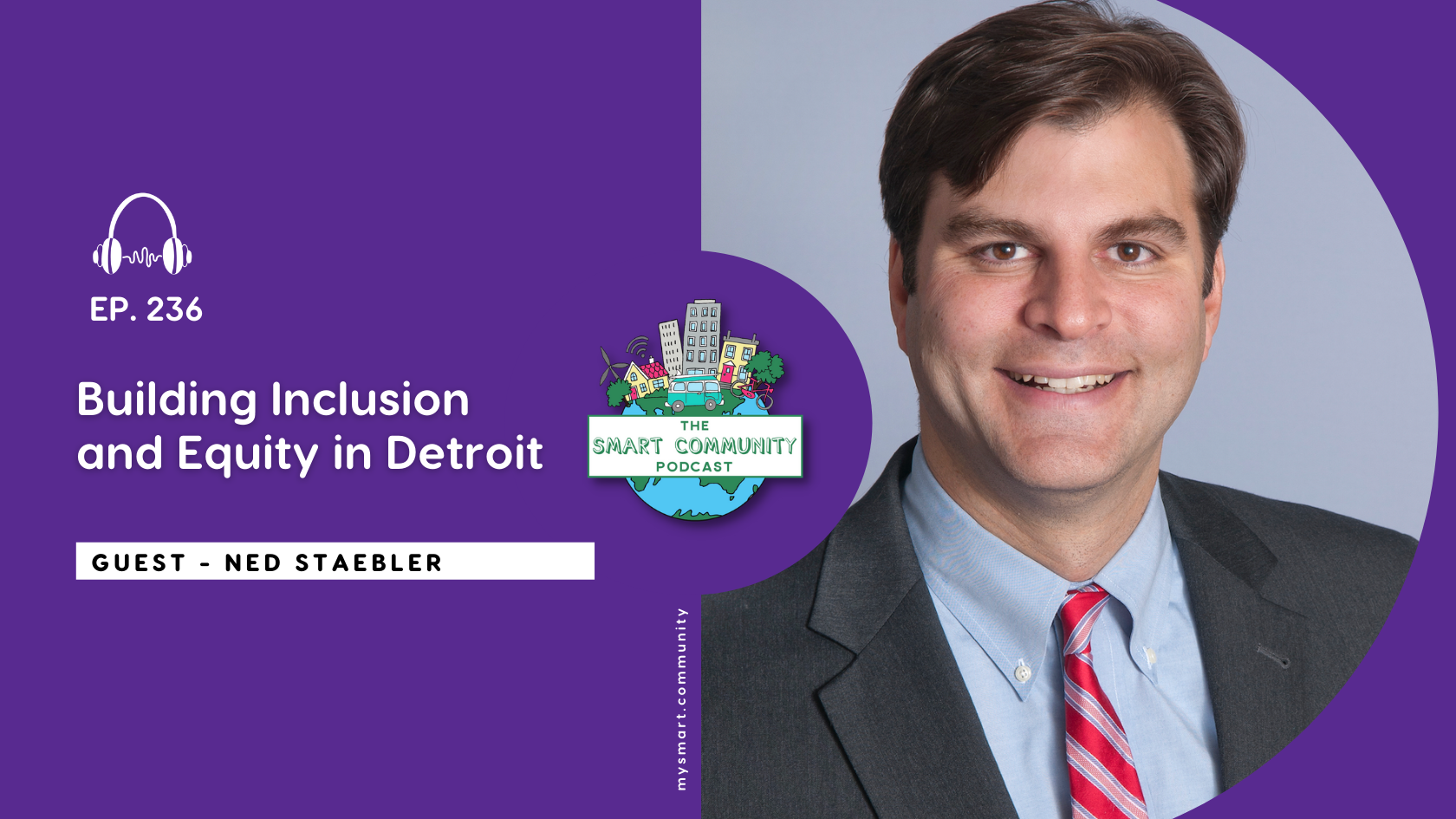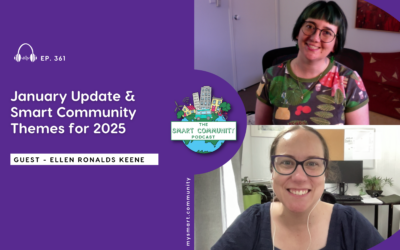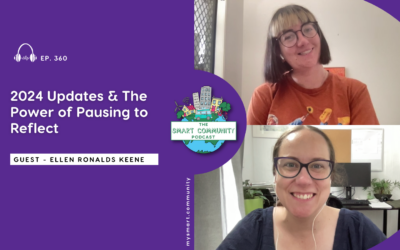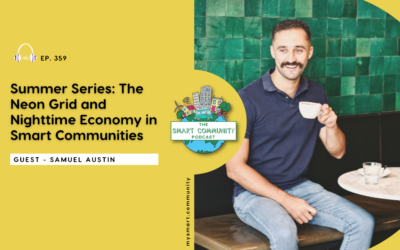Hi #smartcommunity friends! In this episode of the Smart Community Podcast, I have a great conversation with Ned Staebler, the President and CEO of TechTown, a Detroit based entrepreneur hub helping startups and local businesses launch and grow. Ned tells us a bit about his background, his passion for inclusive economic growth in the City of Detroit, before sharing with us what a Smart Community is to him and how his love for a sense of community led him into the Smart Communities space.
Ned then tells us about TechTown, how they started and some examples of the businesses they have helped, before discussing the history of Detroit and how its communities have evolved and changed over time. We then discuss the importance of the end user and public engagement when planning and making decisions for communities, as well as the need for diverse skill sets to then build solutions for those communities. We then discuss people’s own skill sets and how important it is to recognise our own strengths and weaknesses to be successful in business.
We finish our conversation discussing the emerging trends of telemedicine and teleconferencing and how these can give much better access to healthcare in communities. As always, we hope you enjoyed listening to this episode as much as we enjoyed making it!
Listen here:
What we cover in this episode:
- Ned’s background as the President and CEO of TechTown and Vice President for economic development at Wayne State University
- His passion for inclusive economic growth and making the city of Detroit more sustainable and equitable for its communities
- What a Smart Community is to Ned
- How Ned’s love for a sense of community led him into the Smart Communities space
- How TechTown began, its background and some of the work it is involved in
- The history of the City of Detroit and how its communities has changed and evolved over time
- The importance of the end user and public engagement when planning and making decisions for communities
- An example from Detroit where technology has not been a successful solution because public engagement around the problem was absent
- The need for diverse skill sets, not just STEM skills, when building solutions for Smart Communities
- How recognising one’s own skill sets as well as their strengths and weaknesses contributes to success in business
- The emerging trend of telemedicine providing better access to healthcare in communities
Quotes:
“Sometimes Smart Cities are smart, because they just work, not because they’re the most technologically advanced place on Earth. Sometimes I think we get caught up in the new, cool hip technology, and forget that sometimes simple things work too if we brought along the community to help design and build [solutions] to solve their actual needs.”
“I ended up 10 years later waking up working for a global money centre investment bank in London, 3000 miles away from my home, and not a part of a community at all. And I was miserable. And I realised that what really makes me happy, and I think for most people, a lot of people at least, is a sense of community and being rooted in where they live.”
“So the same sort of teachings that [TechTown] were using to help people commercialise high technology and intellectual property based businesses, we discovered worked really well for other things. And Detroit really needed bakeries and coffee shops and restaurants and barber shops and services and amenities. And so now we help all sorts of businesses to start to grow, regardless of whether it’s a mobile app, a medical device, or a barbershop.”
“So to me, a Smart Community is a place that works for its residents. It’s really that simple.”
“I think the most important thing is something that everyone pays lip service to, but relatively infrequently, actually does, which is to think about the end user and in urban planning, [that is] the people that live there.”
“So ultimately, the point of these Smart Cities is to work for the people who live there. And yet, so often, many of the decisions, or the white papers, or the policies that affect them are being made by people who don’t live there and aren’t a part of [that community].”
“I work in a place called TechTown, I have probably hired more English majors or poets than I do computer science majors. Because like you said, not everyone needs to actually do the coding, you have to understand what coding is, and what it’s for, but there’s a lot more around it. That is just as, if not more important.”
“COVID has demonstrated to us we can do a lot more in this regard. And we have a huge problem in various parts of the world with access to health care for various reasons. And I think the advances we’ve seen just in the last year around telemedicine or teleconferencing is going to make telemedicine far more normal, and it’s going to allow for far more increased access to healthcare everywhere.”
Links:
The Origins of the Urban Crisis by Thomas Surge – https://www.amazon.com.au/Origins-Urban-Crisis-Inequality-Postwar/dp/0691121869
The Big Leap by Gaye Hendricks – https://www.amazon.com.au/Big-Leap-Conquer-Hidden-Level/dp/0061735361
Connect:
Find the full show notes at: www.mysmart.community
Connect with Ned via the TechTown Detroit Website – https://techtowndetroit.org/
Connect with me via email: hello@mysmart.community
Connect with My Smart Community via LinkedIn or Twitter and watch on YouTube
The Smart Community Podcast is produced by Perk Digital.






0 Comments